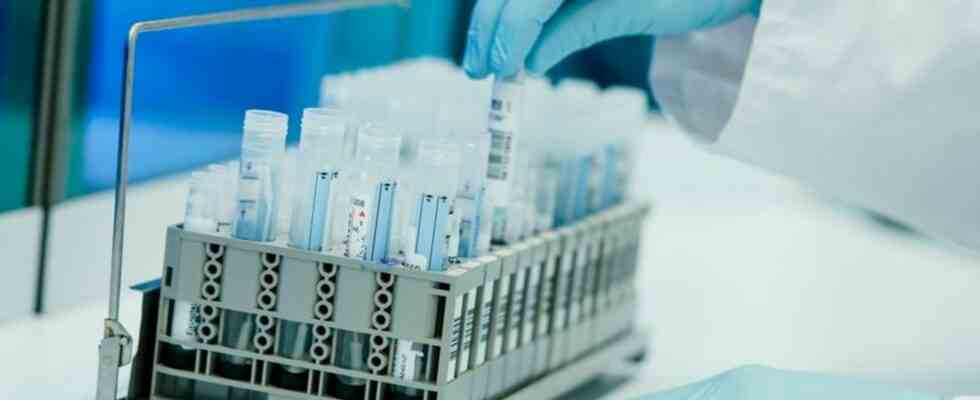Pandemic
RKI: Infection rates are picking up – BA.5 continues to grow
An employee prepares PCR test tubes in a Heidelberg corona test laboratory. Photo: Uwe Anspach/dpa
© dpa-infocom GmbH
She had been awaited with trepidation by many – the Corona summer wave is now rolling in Germany. The dynamics of the pandemic have also been clearly demonstrated in the past week.
Higher incidences, more outbreaks in old people’s and nursing homes, more patients with Covid-19 in intensive care units again – according to the Robert Koch Institute (RKI), the infection process has recently been showing a dynamic upward trend.
The nationwide seven-day incidence increased by 38 percent in the past week compared to the previous week, according to the RKI’s weekly report on Thursday evening. Accordingly, this increase affected all age groups, especially older people, children and young people.
According to the report, there was again a significant increase in the number of outbreaks in old people’s and nursing homes and the number of people treated with Covid-19 in intensive care units in the past week. According to the Divi intensive care register, the number of patients in an intensive care unit was 934 on Thursday – compared to a good 600 patients at the beginning of the month.
Omicron subvariant grows
In addition, according to the weekly report, the omicron subvariant BA.5, which has been dominant in Germany for some time, has recently increased again. According to the latest findings – a sample from the week before last – their share was almost 66 percent. The week before, BA.5’s share was around 52 percent. As the RKI experts write, the BA.4 variant has recently continued to increase, but less strongly than in the previous weeks – according to the latest findings, it was around 7 percent. In Germany, the genome is only completely examined in a small proportion of positive samples.
“Thus, the shares of the Omicron sublines in Germany follow the trend in many other countries,” it says. According to the current state of knowledge, the so-called spike proteins of BA.4 and BA.5 have properties “that are associated with increased transmissibility and/or immune escape”. The experts in the report point out that the epidemiological data available to date does not indicate that infections with BA.4 or BA.5 cause more severe disease progressions or proportionately more deaths than BA.1 and BA.2 did before.
Also more severe gradients
Nevertheless, the sharp increase in cases of infection alone is currently showing a higher number of severe courses – which is reflected in the increasing number of hospitalizations. “An increase in the number of deaths is indicated with regard to the expected late reports,” warns the RKI. In this context, the experts also emphasized via Twitter that “very good vaccination protection against a serious illness can continue to be assumed, especially for people with a booster vaccination”.
In view of the development and the risk to the health of the population from Covid-19, which is still rated as “high”, the RKI continues to call for compliance with the recommendations for avoiding infection: keep your distance, observe hygiene rules, wear a mask, ventilate and corona warning use app. The institute also recommends “urgently” avoiding contact with new symptoms such as a runny nose, sore throat or coughing and contacting your family doctor if necessary – regardless of the vaccination status and even if the rapid test result is negative.

